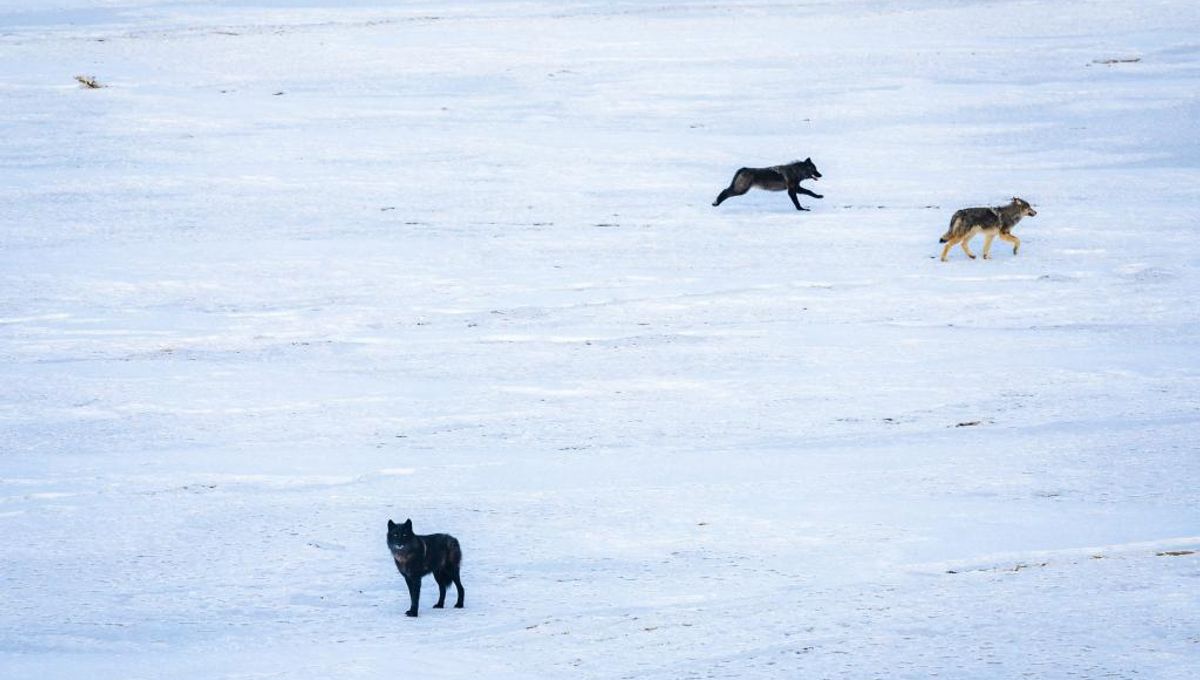
Another of Colorado’s reintroduced gray wolves has died. The female wolf was reported dead in northwest Colorado on May 15, marking the seventh death among the wolves reintroduced to the state in recent years.
In a short statement, Colorado Parks and Wildlife said the cause of death will not be revealed until the necropsy and investigation are completed. The agency added that the individual belonged to a group of 15 wolves that were relocated to Colorado from British Columbia in January 2025.
The wolf is reportedly the seventh death since the state’s reintroduction program began in 2023 and the fourth from this year’s relocated cohort to die.
In 2020, Colorado voters approved their reintroduction by a slim margin. The public voted to approve Proposition 114, a ballot measure that would see the Colorado Parks and Wildlife Commission restore and manage gray wolves on designated lands west of the Continental Divide.
The plan was highly controversial and divisive from the get-go. Supporters argue that reintroducing wolves could help restore balance to local ecosystems, as the species was overhunted and eradicated from the state in the early 20th century.
Opponents, meanwhile, contend that releasing predators into the wild poses a risk to livestock and could result in financial losses for farmers. They can be reimbursed the market value of the animal, up to $15,000, but many are still not happy with the plan.
The first batch of 10 wolves was released in 2023 and at least two of them have been illegally shot by people. Others have been killed by natural causes, such as one wolf that appears to have died after getting into a fatal scuffle with a mountain lion.
Colorado Parks and Wildlife points out that death is to be expected among wild wolf populations. In another announcement about a previous wolf death in April 2025, the agency said the average lifespan of a gray wolf in the Rocky Mountains is generally three to four years and wolf survival in Colorado is “within normal margins for a wolf population in the Rocky Mountains.”
Meanwhile, scientists are watching closely to see how the situation in Colorado will pan out. A 2024 study by the Colorado State University looked at the reintroduction of wolves to Yellowstone’s northern range and found that bringing back wolves and other apex predators is not a quick fix for restoring ecosystems.
Even so, the researchers emphasized that their findings show the long-term ecological value of wolves, which could have important implications for Colorado.
“Our work supports the fact that wolves are important components of ecosystems. They will have some ecosystem benefits by reducing some large herbivore populations. Over the next hundred years, they’ll have a greater role in regulating some of the ecological processes that we’ve been studying,” David Cooper, a research scientist emeritus at Colorado State University, said in a statement.
Source Link: Another One Of Colorado's Reintroduced Wolves Has Died, Marking Fourth Death In 2025 Alone